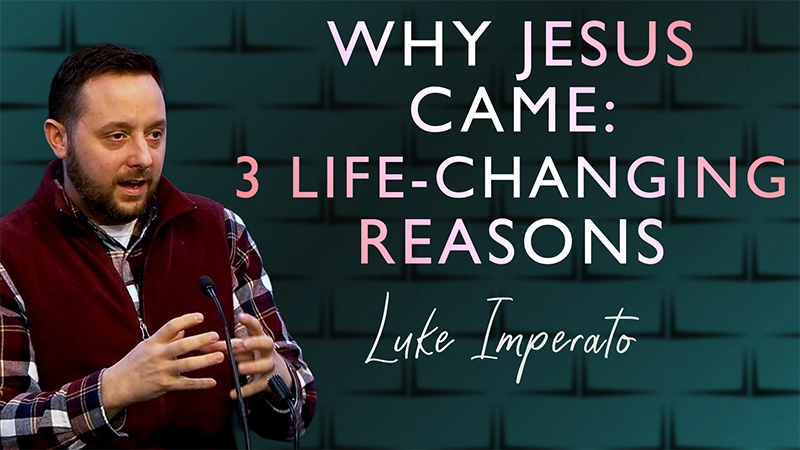
A Biblical Perspective on Brokenness
When we talk about the need for brokenness in order to escape from the grip of sexual sin, it is important to understand brokenness from a biblical perspective and not from a worldly or psychological point of view.
What is brokenness and where does it come from? Should Christians seek brokenness as a means of getting closer to the Lord and overcoming life-dominating sin? Or is brokenness an unfortunate side effect of upbringing and environment? Jim Lewis shares the biblical perspective. (From #354 - What Role Does Brokenness Play in Freedom from Porn?")
Read any journal or blog article written from a psychological perspective on the subject of brokenness, and the writer will offer sympathetic words about the pervasive nature of struggle, grief, depression, and how emotional pain afflicts seemingly every soul. After all, they will say, “we are all broken.”
And when people in general, even those in the psychologized culture of today’s church, speak of their own brokenness, they speak of it in one of the following ways:
Some speak of brokenness as the result of being sinned against. “I was sexually abused as a child, and that left me scarred and broken.”
And others use the word broken to describe having to endure great suffering or grief. “The loss of both of his parents in the accident made him a broken man.”
As a biblical counseling ministry for men in sexual sin, we see more than our share of this kind of brokenness. We see men who have been terribly abused, who have been greatly sinned against, who have suffered much and experienced the pain of loss and grief. And we help these men deal with many of these issues by applying the comforting balm of the Word of God to their hearts and trusting it will be applied to them by the Spirit of God, Whom Jesus called the Comforter.
But many others use the term brokenness to explain the reason why they sin. They say something like “In my brokenness from feeling abandoned by my father, I pursued pornography and self-gratification.” According to this line of thinking, sinful attitudes and actions against God are conceded as permissible, even unavoidable, because something happened to them which needs fixing.
So why are we suggesting in this show that brokenness is a key element in finding freedom from pornography and other sexual sin? It’s really quite simple: When the Bible speaks of brokenness, it means something entirely different than the examples I already gave. Biblical brokenness is something to be pursued, not avoided. Something to be embraced, and not something from which you need healing. Something that brings freedom from sin, not enslavement to it. Biblical brokenness is a good thing, and will do you good.
Listen to the way David speaks of brokenness in Psalm 51:16-17
For You do not delight in sacrifice, otherwise I would give it;
You are not pleased with burnt offering.
The sacrifices of God are a broken spirit;
A broken and a contrite heart, O God, You will not despise.
In this psalm, King David has come to grips with the horror of his sins of adultery and murder. And in this light, David confesses that what would please God most is if David had a broken spirit. He didn’t sin because he was broken. He sinned because he wasn’t. This admission is baffling, maybe even abhorrent to those who have been schooled in the thinking of psychology.
{{blog-bwalk="/blog-ads-storage"}}
Let’s also look at Psalm 34:18:
The LORD is near to the brokenhearted
And saves those who are crushed in spirit.
Psalm 34 is a psalm that celebrates that God has come to David’s rescue, and saved him from a perilous situation. In it he reflects on those whom the Lord watches, whom He regards, whom He rescues. He describes the righteous as those who are brokenhearted and crushed in spirit. The righteous are those who seek the Lord, cry out to the Lord, and take refuge in the Lord. The righteous are not those who are strong in themselves, but who have no strength. They are humble, meek and poor in spirit. This poor man cried, and the Lord heard him.
The Bible clearly shows us that God both desires brokenness and rewards broken people with the wonder of His presence and the power of His deliverance.
But why?
Because pride is the base sin behind every other sin. Every sin is an act of rebellion against God, and so every sin is an act born in pride. Pride is what keeps us from seeing our need for God and coming to Him for help and salvation. God can only do work in the life of the humble, because only the humble will see his need and ask for help. The Bible says that “God stands opposed to the proud but give grace to the humble.”
It was pride that caused David to lust after a woman, pride to think he could have another man’s wife; pride to think he would get away with it. When Bathsheba sent word to him that she was expecting his child, it was pride that kept him scheming, seeking to cover his tracks, and pride that gave him permission to have her husband cut down and killed on the battlefield.
His pride only finally broke under the conviction of God when the prophet told him that his sin was known, that it was repugnant to God, and that it would cost him the life of his infant son. His brokenness in Psalm 51 is not the brokenness of being sinned against, or of loss, or of suffering. His brokenness is the great coming down of his pride.
Men come to Pure Life after years and decades in secret sexual sin. We know that they come to us overflowing in pride because we arrived here the same way. In proud rebellion against God we pursued our sin and the more we sinned the prouder we became, until we reeked of it. Then our sin started to pay its wages, and our lives began to unravel. We came here for the Lord to rescue us.
And How did he do it? In many ways, the most important of which was that we had to come way, way down in our pride, and we had to come into brokenness. Our brokenness made us open to His work. Our brokenness led to real repentance. And our brokenness allowed God to really get to work in our lives.
It is this repentance from pride and coming into humility that makes us pleasing to God. When we see our sins as a grievous offense to the heart of a holy God, we ought to be humbled. When we see ourselves as totally depraved and helpless without Him, desperately in need of a Savior, we ought to be humbled. Jesus declared that happy and blessed are the poor in spirit and those who mourn. He comforts those who come way down in their pride and blesses their lives. Coming down in our sinful pride, coming into humility and real brokenness is a major key to finally getting free from addiction to porn.
















